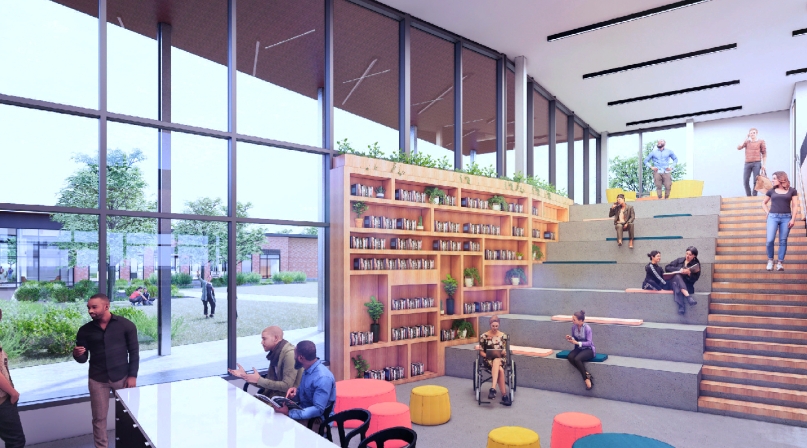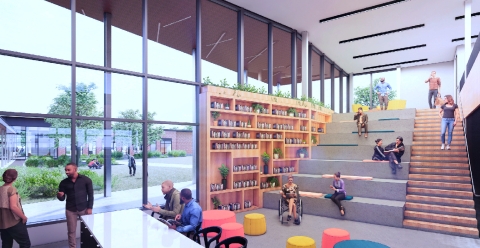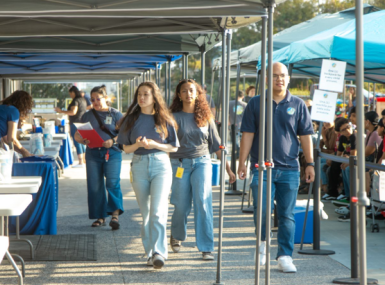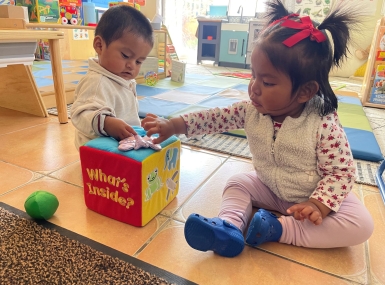Harris County facility will house ‘aged-out’ foster youth

Key Takeaways
A new facility breaking ground in March will house not only staff offices for Harris County, Texas Resources for Children and Adults, but 50 apartments for foster children who are aging out of the system.
The new HAY (Houston Alumni and Youth) Center campus will include all of the resources essential to transitioning to adulthood, including life skills training, job placement, housing assistance, education assistance and a coaching and mentoring program. The center, which has operated since 2005, left its previously leased office facility for 27 staff members last year and expects completion of the new campus by fall 2023.
“There won’t be any timeline on how long they can stay, we want to get them to the point where they can secure long-term housing and move ahead with their lives,” said Estella Oguin, community relations director for Harris County Resources for Children and Adults. “Homelessness among foster youth creates other challenges like unemployment and risk of involvement in the criminal justice system. They end up couch surfing or forced to resort to unsafe living situations.
“Fifty units is, of course, not enough, but it’s a start.”
Harris County estimates that roughly 200 foster children turn 18 every year and age out of the system, though Oguin notes that the services Harris County offers and the number of potential foster families in the county often attract youth from surrounding counties and regions. The HAY Center will be open to people up to age 25, and includes services from the Texas Workforce Commission and local housing authorities.
“The HAY Center will be a safety net for some Houston-area people when they leave foster care without a responsible adult’s support to guide their transition to adulthood,” said Commissioner Rodney Ellis, whose district includes the center. “These youth, many of them still teenagers, are expected to shift overnight from being dependents of the state to independent adults. The facilities will assist with that transition as well as be a one-stop center designed to feel like home.”
The $35 million project includes Community Development Block Grant funding from both the county and the city of Houston, along with $5 million of Harris County’s allocation from the American Rescue Plan.
“The American Rescue Plan funding was crucial to getting this done, because the costs of materials and labor skyrocketed during the pandemic,” Oguin said. “This funding helped make sure we could keep pace with the costs and make it happen.”
The campus will include a 41,000 square-foot residential building and 17,000 square-foot office building, with plans to add more residential units and emergency shelter units.
The residential building will include laundry facilities, a gym, indoor study and business rooms and an outdoor gathering space.
“We designed this with the input of foster youths,” Oguin said. “While it won’t be a long-term housing solution, we want it to be a place where they can feel comfortable and at home, and we took a lot of their suggestions into account.”
Conceptually, the youths identified four elements for the new HAY Center campus: home, security, community and wellness.
“No foster youth should face homelessness simply because they turn 18,” said County Judge Lina Hidalgo. “Providing these young adults with stable housing, along with the programs and services that will help them on their path to becoming successful adults, is an investment in our future.”

Attachments
Related News

National Association of Counties expands programming to build childcare supply
NACo announces the launch of its Childcare Supply Network. This new peer learning network will support local leaders in addressing childcare challenges and co-creating sustainable solutions to strengthen local childcare systems in response to workforce needs.

California county program helps spark student careers
San Diego County created a win-win program to fill open staff vacancies and give college students real-world work experience.

California county, non-profit help launch child-care startups
Adrianna Segura, a Stanislaus County, Calif. mother of two, was licensed to be a home-based child-care provider, but she didn’t know the first thing about starting a business. She knew how to take care of children, but she wasn’t sure how to file taxes, create contracts or what her rate should be.
